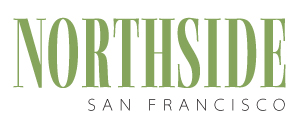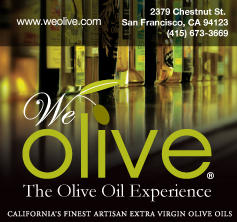
Forgetting for the moment all of Facebook’s legal problems (and there are a lot of them to forget for the moment), there’s still the site’s way of rolling out new privacy-endangering features with the assumption that the user should turn them off if they are unwanted. But even then, it can be a bit of a time-consuming challenge to find the place to turn off the unwanted feature. Most recently, it launched a facial-recognition feature that tagged individuals in other people’s newly uploaded photos. And let’s not forget (nor forgive) the amateurish attempt to use a public relations firm to spread stories about Google’s alleged privacy problems.
But Facebook is looking a bit vulnerable with the launch of Google+, the new social media service from Google. Before G+ launched in beta last month, you would have been perfectly justified in assuming it would be a flop. Google has a terrible track record in this space. Many people never understood Google’s Wave and never figured out the point of Google’s Buzz. Both were attempts to latch onto the social media bandwagon, but both also showed that the Googleplex was clueless about how to do it.
Google+ changes all of that. Frankly, it is easier to use than Facebook. It is beautifully integrated into the rest of the Google apps and services. If you have drunk the Google Kool-Aid, then Google+ is a simple added sip.
Bob Martin, an early Google+ user better known to movie fans as the original editor of famed horror magazine Fangoria, tells me he thinks G+ will send Facebook the way of MySpace and the Dodo. “All these services depend on the OCD info-junkie in us all, and junkies seldom divide their passion between two drugs … just one is the drug of choice, and Google is a much more efficient info delivery system; they’ve got the more potent drug. It’s all over, Zuckerberg.”
Another fan is Jason Calacanis, a serial entrepreneur, angel investor and writer who cofounded Weblogs Inc., which was later sold to AOL for about $25 million. He calls G+ “awesome” and suggests a number of questions about how it will impact the social media marketplace. I was most interested in one of his questions for G+ users: “You can only have one, pick now: Facebook, Twitter or Google+?”
Good question. My initial reaction was – and remains – I don’t have to choose. I’m really not interested in the never-ending game playing in the dot-com world that says, Highlander-style, there can be only one player in each market and all competitors must die. But Calacanis and Martin are both on to something from the viewpoint of limited interest and time on the part of users. Sometimes, something drops by the wayside when a better alternative comes along.
Anastasia Ashman, a Bay Area native who now runs the Expat Harem media company in Istanbul, Turkey, thinks G+ has an attractive strength. “I’ll keep using Facebook, but I’ve already connected with a lot of different people on G+ that may turn my head further away,” she says. “I especially like that the ‘friend’ dynamic is removed. Interested? You can access a person’s feed if they allow it. Not interested, you can block or hide someone who’s interested in what you share.”
Ashman, a former colleague of mine at Internet World magazine, added that Google+ “just seems more attuned to the filtering we all are starving for at Facebook and have become somewhat accustomed to at Twitter.”
Google+ actually comes along right when the wunderkinds of Mountain View were beginning to appear dangerously out of touch. They botched an important bid for a boatload of mobile technology patents, apparently leaving other bidders mystified by basing their losing bid amounts on favorite geek numbers like pi. Microsoft’s Bing search engine continued to announce new partnerships, while Google was stuck facing a possible investigation from the U.S. government, as well as some well publicized hacking of Google e-mail accounts allegedly by countries that shall remain unnamed because they own us.
The only serious criticism that Google+ has received in its early trial phase has been its inability to handle the beta testers who were doing everything short of selling elderly relatives to get an invitation to join the beta. To that, one must simply note that it is a beta; anyone who complains about a quirk here or there in a beta needs a remedial course in beta tests.
A good test that Google+ passes is the real-reader test. Like many people, I don’t read directions if I don’t have to. Life’s too short, and the people who write directions are usually barely literate. With Google+, I was able to figure out things like creating new circles of contacts, adding contacts to various circles, making photo albums public or private, and many other things. It is an intuitive system. I also found the Google+ app for my Android Smartphone to be simple to manage and apparently designed with ease of use in mind.
If I stop using Twitter or Facebook, all that will happen is I’ll stop going to those two sites, and their feeds will stop coming to my devices. But if I stop using Google+, I will still have zillions of photos in Picasa, countless blog postings on my Google blog page, and dozens of videos on YouTube; I’ll still check my Gmail countless times a day, the Google calendar will still tell me when to pay my bills, and Google docs will continue to be my access-everywhere word processor.
Google might be late to the social networking game, but it has an immeasurably deeper bench of sticky services to give it the ability to innovate and combine services. Google+ is a well-done offering.
John Zipperer is the former executive editor of Internet World magazine and can be found on Google+ as jzipperer. E-mail: johnz@northsidesf.com








